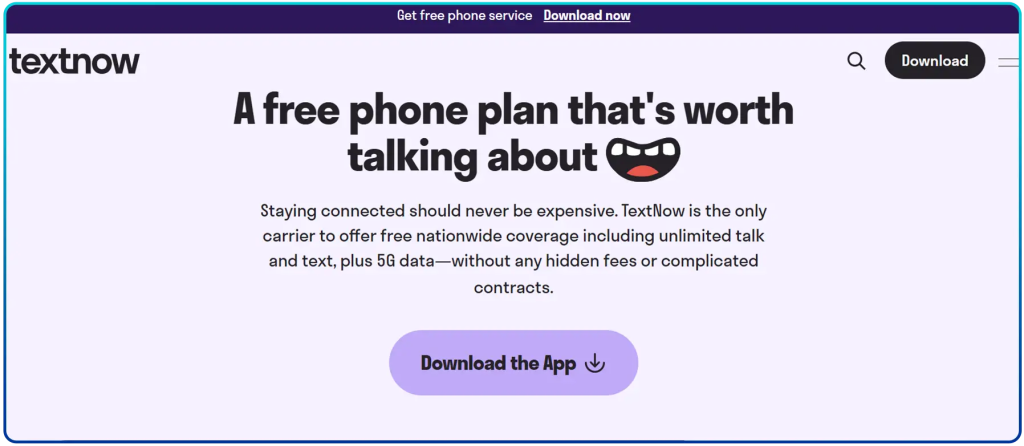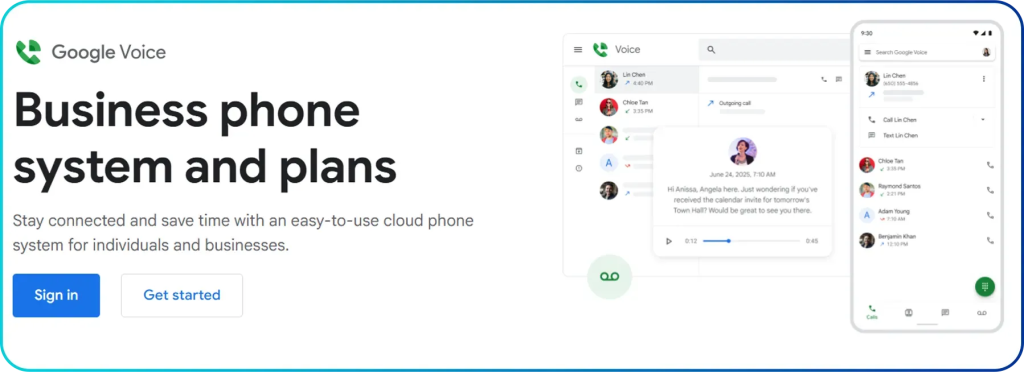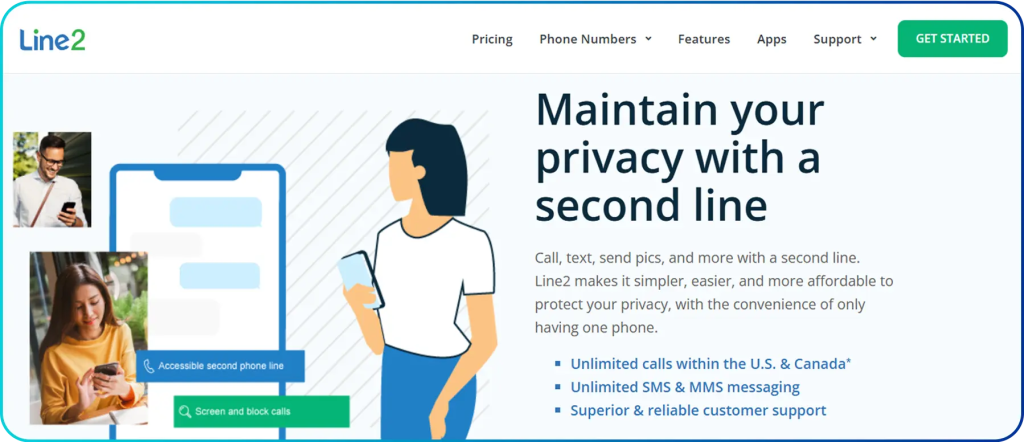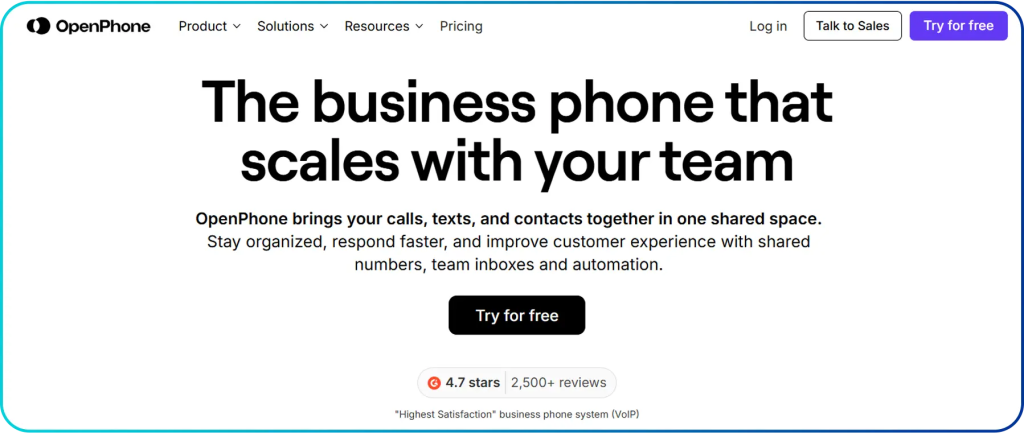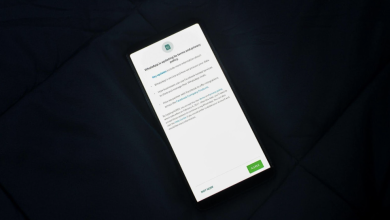
In 2025, your phone number is no longer just a way to stay connected. It has quietly become one of the most valuable identifiers in the digital world. Every time you sign up for a new app, log into an AI tool, or create an account on a website, that number links your activity across platforms. While this makes verification easier, it also exposes more of your personal data than most people realize.
AI systems and digital platforms increasingly rely on phone numbers to confirm identity, personalize experiences, and prevent fraud. The problem is that your real number can also be used to track you, target you with ads, or even expose your private information through data leaks or spam.
That is where virtual phone number apps come in. They give you the ability to verify your accounts, communicate securely, and protect your personal number from unnecessary exposure. Whether you are signing up for Telegram, testing AI tools, or managing multiple online accounts, these apps offer a smarter and safer way to stay connected without giving up your privacy.
In this guide, we explore the best virtual phone number apps for personal and privacy‑focused users in 2025, and how they can help you take back control of your digital identity.
Why You Might Need a Virtual Phone Number App
Almost every app, website, or AI platform today asks for your phone number. It has become the key to verifying your identity, but it is also one of the easiest ways for companies and algorithms to track your activity. Once your number is linked across multiple platforms, it creates a clear trail of your online behavior that is difficult to hide or erase.
A virtual phone number app helps you break that pattern. By using a separate number for sign-ups and verifications, you can avoid spam messages, reduce the risk of SIM swap scams, and protect your real number from being exposed or sold to third parties.
These apps are also incredibly useful when testing new AI tools or joining communities on platforms like Telegram or Discord. Many users rely on them to safely explore early-access platforms or verify accounts for temporary use. For business travelers and digital nomads, virtual numbers are also a convenient way to stay reachable without switching SIM cards or paying international roaming fees.
They can even help you keep your personal and professional communications separate. Instead of juggling two phones, you can manage both numbers from a single app.
Whether you are an AI enthusiast, a developer testing apps, or simply someone who wants more control over your online identity, virtual phone number apps offer a simple way to protect your privacy and stay flexible wherever you go.
Best Virtual Phone Number Apps Ranked
1. Quackr
Quackr is a privacy-first virtual phone number platform built for users who value speed and simplicity. It allows you to receive SMS verification codes instantly without sharing your real number. Whether you’re signing up for WhatsApp, Gmail, or Telegram, Quackr makes the process quick and private. The platform supports multiple countries, including the US, UK, and Germany, and requires no registration to start using.
Pros
- Instant access to virtual numbers for OTP verification
- Works across major platforms like Telegram, Gmail, and WhatsApp
- International numbers from over 40 countries
- No personal data required
Cons
- Supports SMS only; no calling or two-way messaging
- Free shared numbers may occasionally fail on some platforms.
Quackr is ideal for anyone who needs secure, fast, and disposable numbers for AI tools or daily app use.
2. Anonymous SMS
Anonymous SMS is a no-sign-up platform offering quick access to temporary phone numbers for receiving SMS online. It’s designed for one-time verifications, especially when you want speed and zero friction. Numbers are shared and rotated regularly, making it ideal for users who value fast access over long-term reliability.
Pros
- No account or sign-up needed
- Free access to multiple international numbers
- Simple, minimal interface
Cons
- Shared numbers may be flagged by some platforms.
- No option to rent or reserve a private number
Anonymous SMS is perfect for quick verifications without giving up your real number or creating an account.
3. TempNumbers.org
TempNumbers.org offers a wide variety of temporary phone numbers from different countries, with a clean interface and fast SMS delivery. You can use it for platforms like Gmail, Telegram, or AI tools that require quick verifications. While mostly focused on public numbers, it also offers some rented options for more reliability.
Pros
- Offers both shared and rented number options
- Clean layout and easy to use
- Good delivery rates for popular services
Cons
- Limited advanced features or customizations
- Public numbers may not work on every platform
TempNumbers.org is a solid option for users who want variety, speed, and global coverage in their virtual number tools.
4. TextNow
TextNow offers completely free virtual numbers for users in the US and Canada. It’s one of the few services that allow unlimited texting and calling over Wi-Fi without any contracts or hidden charges. Perfect for anyone looking for a long-term second number, TextNow also gives users an optional upgrade to remove ads or use data through its affordable SIM plan.
Pros
- 100 percent free phone numbers for the US and Canada
- Works for both calls and texts
- Simple setup through app or web browser
Cons
- Ad-supported unless upgraded to a paid plan
- Limited functionality outside North America
TextNow is best suited for users who need a reliable second number for personal communication or testing AI tools with US-based access.
5. Hushed
Hushed is a great virtual phone number app for users who want international coverage and more privacy options. It offers numbers in over 40 countries and supports both calling and texting. Hushed is designed for users who want to keep their real number private during business, travel, or dating. You can set custom voicemail greetings, auto-replies, and even burn the number when you’re done using it.
Pros
- International numbers from over 40 countries
- Supports voice calls and SMS
- Disposable numbers with flexible rental plans
Cons
- Paid app with limited free functionality
- Some features require subscription upgrades.
Hushed is perfect for travelers, remote workers, and anyone who needs a private line that feels like a real second number.
6. Burner
Burner is one of the original apps built for privacy and short-term communication. It lets you create disposable phone numbers that work for calls, texts, and voicemail. Burner numbers can be used for online shopping, dating apps, or selling on marketplaces where you want to stay anonymous. When you’re done, simply burn the number and create a new one.
Pros
- Quick setup and easy to use
- Ideal for dating apps or short-term tasks
- Supports call forwarding and voicemail.
Cons
- US and Canada numbers only
- Limited free use; credits are required for extra usage
Burner is best for users who want temporary privacy with full calling features, especially for one-time interactions.
7. Google Voice
Google Voice is a free virtual phone number app from Google, designed for US users. It gives you a stable number that works across devices and syncs with your Gmail account. You can make calls, send texts, and access voicemail using WiFi or mobile data. It’s a solid pick if you want long-term access and easy integration with your Google Workspace.
Pros
- Free and works across Android, iOS, and web
- Syncs with Gmail and Google Calendar
- Great for remote work or personal use
Cons
- US phone numbers only
- Requires a Google account to sign up
Google Voice is ideal for anyone who wants a reliable second line that plays well with Google’s ecosystem.
8. Line2
Line2 is a simple and affordable second-line app that supports calling and texting over WiFi. It’s great for personal use or side hustles, offering a straightforward way to manage two numbers on one device. With US and Canada coverage, it’s especially handy for freelancers, delivery drivers, or anyone needing a separate line.
Pros
- Easy setup and clean user interface
- Supports calls and texts over WiFi
- Works well for solo professionals
Cons
- Limited to the US and Canada numbers
- Basic features unless upgraded
Line2 is perfect for users who need a no-fuss second number that just works.
9. eVoice
eVoice is a virtual phone system designed for professionals who want more control over their calls. It comes with features like custom greetings, call forwarding, voicemail transcription, and even toll-free numbers. While not built specifically for OTPs, it shines when you need a polished communication layer for business or freelancing.
Pros
- Professional-grade call handling features
- Offers toll-free and local numbers
- Voicemail transcription included
Cons
- Not ideal for quick SMS verifications
- More expensive than basic apps
eVoice is best for users who want a customizable phone system for business use.
10. OpenPhone
OpenPhone is a modern phone solution designed for startups, remote teams, and tech-savvy users. It supports calling, texting, and even Slack integrations, making it a favorite among digital-first businesses. With international number support and strong privacy policies, it’s also great for AI freelancers and entrepreneurs.
Pros
- Great for teams and startup workflows
- Works with Slack and other productivity tools
- Supports multiple numbers and shared inboxes
Cons
- Requires a monthly subscription
- Overkill for casual users
OpenPhone is ideal for entrepreneurs or small teams who want smart, flexible number management.
How to Choose the Right Virtual Number App
Not all virtual phone number apps are built the same. The right one for you depends on your use case, how often you need it, and what platforms you plan to use it with. Below are the key factors to consider before making a choice.
1. Platform Compatibility
Some apps work flawlessly with popular services like WhatsApp, Telegram, and Gmail. Others are blocked by these platforms altogether. If your main goal is account verification, make sure the app or number is known to successfully receive OTPs from your target platform.
2. Country Coverage
If you need a number from a specific country for signup purposes or geo-targeted tools, check which countries are supported. Providers like Quackr offer broad international coverage, while others focus on specific regions like the US or Canada.
3. OTP Delivery Success Rate
This is often the deciding factor. A virtual number might be cheap or even free, but if it cannot receive verification codes reliably, it becomes useless. Look for platforms that are actively tested and optimized for high delivery success rates.
4. Setup Time and User Experience
Some apps let you get started in seconds with no account required. Others need a full onboarding flow. If you need something quick and disposable, avoid providers that complicate the setup process.
5. Privacy Policy and Data Handling
Since privacy is the core reason many people use virtual numbers, be sure to choose apps that have transparent data practices. Avoid those that log or resell your SMS history.
6. Pricing Flexibility
From free shared numbers to premium long-term rentals, the right app should offer plans that match your needs. Look for providers that give you the ability to scale or downgrade easily.
Choosing the right app is not just about features; it’s about finding a tool that fits your digital habits, risk tolerance, and platform needs.
Conclusion
In 2025, your phone number is more than just a contact detail; it is a digital fingerprint that AI systems, apps, and advertisers can use to track your behavior across platforms. And as AI-powered tools become more integrated into everyday life, protecting that fingerprint is no longer optional.
Virtual phone number apps offer a simple, effective layer of privacy. Whether you are signing up for a new AI tool, verifying a Telegram bot, or just avoiding unwanted SMS spam, these apps give you control over what you share and with whom.
From free options like Anonymous SMS to privacy-focused platforms like Quackr, there is a virtual number app for every kind of user: developers, digital nomads, entrepreneurs, or everyday users concerned about data exposure. Tools like Anonymous SMS and TempNumbers.org are also rising in popularity for their quick and temporary numbers.
If you are serious about your privacy, start thinking of your phone number the way you think about your passwords or IP addresses, as something to manage, not give away freely.
Want to dig deeper into digital identity and privacy? Check out our other piece:
AI Is Getting Smarter. So Should Your Privacy Strategy
Or, if you are ready to take control now, explore Quackr’s private and reliable virtual number options here: Rent Virtual Number Now
Privacy starts with what you share. And what you do not.




